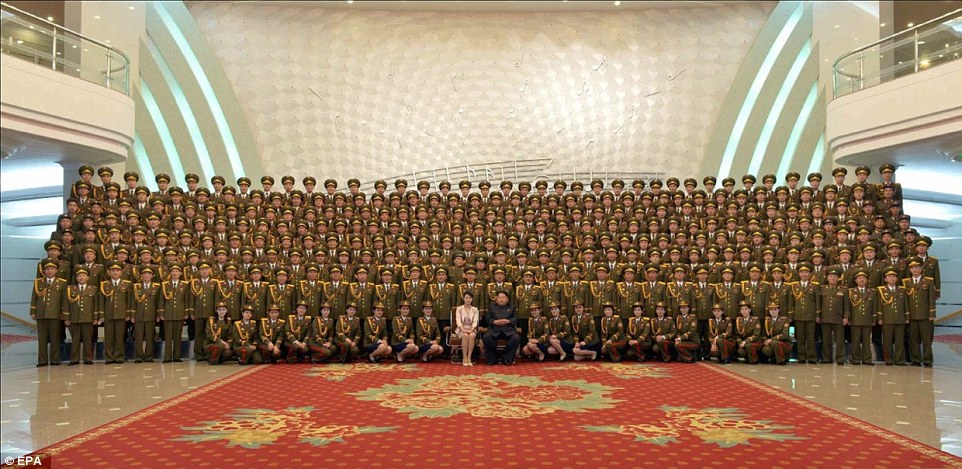for NORF only
the FULL unedited version of Alpha's The Heart of Darkness: My Burco Chronicles
--------
Alpha Blondy;820824 wrote:
I have been in the homeland now for almost two years helping grass roots, organic development, development dictated by us and not them.
My trip to burao was dedicated to exploring the deepest recesses of my wonderful, colourful and exotic country, to explore and interact a place which has captured my imagination as not only the apparent Birthplace of my country (usually this little ditty is uttered mainly by my Job Seekers Allowance and income support dependent ‘friends' back home in Tottenham, not authentic remittance dependent Somalilanders) but also the stronghold of our economy: livestock.
I set off from Hargeisa, with the sound of the glorious call to prayer surrounding us, with some experienced local guides- which my travel companion Saeed insisted on as a pre-requisite for his voyage to burao. I instantly dismissed him as a white sell out, some kind of white big game hunter- a description of him I thought quite apt seeing as he was sporting a large Stetson and cowboy boots.
However something unnerved me. The mood and expression of the local guides was sombre, the prevailing atmosphere tense, strange I thought as we were going to the birthplace of our homeland and not some monkey inhabited central African village.
The convoy left (three land cruisers with armed staff) from Hargeisa and all was well. We made good time and soon made Berbera. After a quick bite to eat and a quick survey of the on-going construction development (for all forummers who are disconnected from Somaliland Berbera is going to become a major transport hub for landlocked east African countries) we set off for burao. This is where the problems started.
The road became more and more uneven with more and more checkpoints. The soldiers, who were relaxed, sitting and unarmed between Hargeisa and Berbera were edgy, were standing and fully armed. We were searched once just outside sheikh and questioned aggressively. The soldiers could not believe we were going to burao for pleasure and thought we had some other sinister agenda- such as terrorism, child abduction, murder, rape etc….
We journeyed on to burao and just when I was going to ask ‘how long to buroa’ did our guide announce ‘welcome to burao’. I instantly noticed the vast expanses of rubbish, tarpaulin laden buuls and more rubbish. Onward we travelled towards the centre of this town.
Although I would like to write about what places we went to I feel the importance of this thread should be centred around the utter nonsense of this conflict prone space . I make no apologies for using vulgarism and ask any online forum member have they been to buroa this year? let alone month? I thought so!
burao is the place where dreams are destroyed. Khat is sold in only a few places, with fujis not even found. Due to the lack of khat, work and food people sit in the dust, en masse, staring into the distance with a vacant, semi-retarded look on their faces. The residents seem to be dark skinned (e.g. Congo type dark skinned) and all have dark teeth. Dirt and grime is highly visible on the clothes of this town and I didn’t see any children. One of our guides mumbled something about child sacrifice but was quickly silenced by his companions.
Everywhere we went people stopped and stared and it took us a while to locate any shops (burao’s residents haven’t any money so a shop isn’t a viable opportunity to make any money) to buy much needed water – funnily enough most of Somaliland's mineral water companies hail from there, or is this another lie propagated by the Kulmiye Kleptocracy. I entered and was quickly accosted by a Daqan Celis from my home town of London. As it turns out this boy has been living in burao for 7 years and has lost all vestiges of civilised behaviour. He spoke perfect Somali but peppered his discourse with profanity, spitting and picking his nose and eating it (something I noticed burao people and their English offspring doing this in London). His shop- - more accurately a tin shack made from Coast powdered milk tins and bought with his mum’s bogus Disability Living Allowance funds- was hardly stocking and what little stock he had was dumped in mounds on the floor. To serve customers, this kid would grab and hold a handful of any item. The charges for these type of transactions were made per hand, and any hand to hand spills were deducted from the fixed price. This resulted in long arguments; the longest of which the kid said lasted for three days. This wasn’t a problem because local residents had nothing useful to do anyway.
This guy, who I quickly named Robinson Crusoe, quickly became aggressive due to my assertion that Spurs were currently occupying a Champions League spot.
I decided to leave. I quickly pasted a group of young males, who were praying- I instantly noticed they did three sujuuds. My guide (who was armed) pointed out that this town’s residents have evolved a strange and home-grown version of Islam due to the latent ignorance, superstition and isolation present in burao.
WATER is a precious commodity in burao and is not used for frivolous activities such as washing clothes and taking showers. Water is instead provided for livestock. My guide explained to me that babies died due to thirst but never livestock as livestock are seen to be the only source of burao’s economy.
The phenomenon of the Somali diaspora present in other parts of Somaliland is totally absent in burao, with the exception of N.O.R.F and Ibtisam, who it was rumoured was kidnapped from Hargeisa and currently under house arrest. Everywhere I went people seemed to think that I was an American Negro. They were surprised by my fluent Somali, they asked me questions about the outside world (i.e. this means Hargeisa), about Silaanyo who they heard was the President of the Republic, if people ate rice like themselves in other places in Somaliland and did Usain Bolt actually run 9.58 in the 2008 Olympics in Beijing.
This last question unnerved me as the crowd starting to chant Usain, Usain over and over again. Someone produced a picture of Maurice Green and the crowd went wild. I didn’t have the nerve to state that this wasn’t Usian Bolt.
I decided to stop speaking to the local residents when a crowd started to form to asking for food and medical supplies. I decided to give out my business card, in the hope of maintaining fruitful relationships with the locals, but this only spurred on my desire to leave when they MISTOOK the cards for cotton buds.
This town’s lack of cars, even mini-buses, was unnerving and my guide explained to me that this was because the locals distrusted anything that can be used to transport any goods or humans, which doesn’t bleed.
It was then that the most shocking revelation was unearthed to me. My guide explained to me that the young local men, due to the absence of what some in the ‘WEST’ deem liberal women, engaged in illicit visits to houses of disrepute, but preferred the company of livestock rather than women. How could this be I thought, the guide explained to me that they protecting the honour of their local women with whom they would consummate the marriage after five or more years. This, I was informed was a local Xeer law, which aid agencies, through the help of 'locally engaged locals' are working hard to abolish.
By now the guides were getting worried as dusk was approaching, they didn’t want to set up camp as now one was sure what came after dark in this godforsaken place. This place, apparently, the birthplace of Somaliland, this second city (with its wide open spaces and strange customs) is unlike any place I have been to in Somaliland.
Dark was rapidly approaching as we left the city, in the background I could see groups of naked men with painted faces engaging in strange dances holding a child.
pictures of burao
dooxa burao



